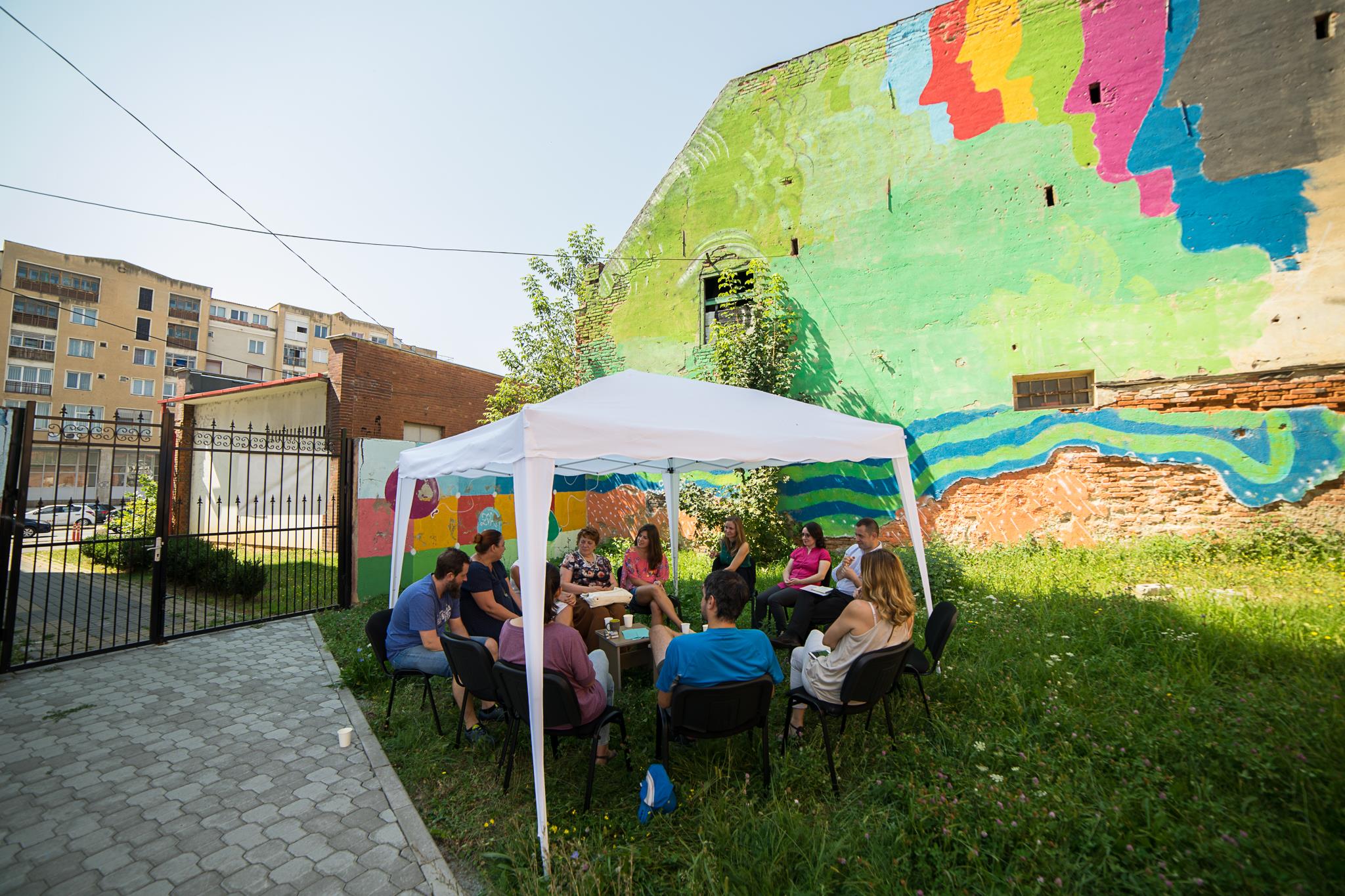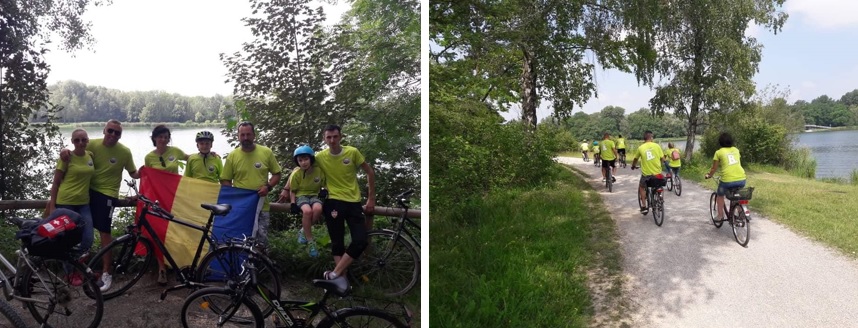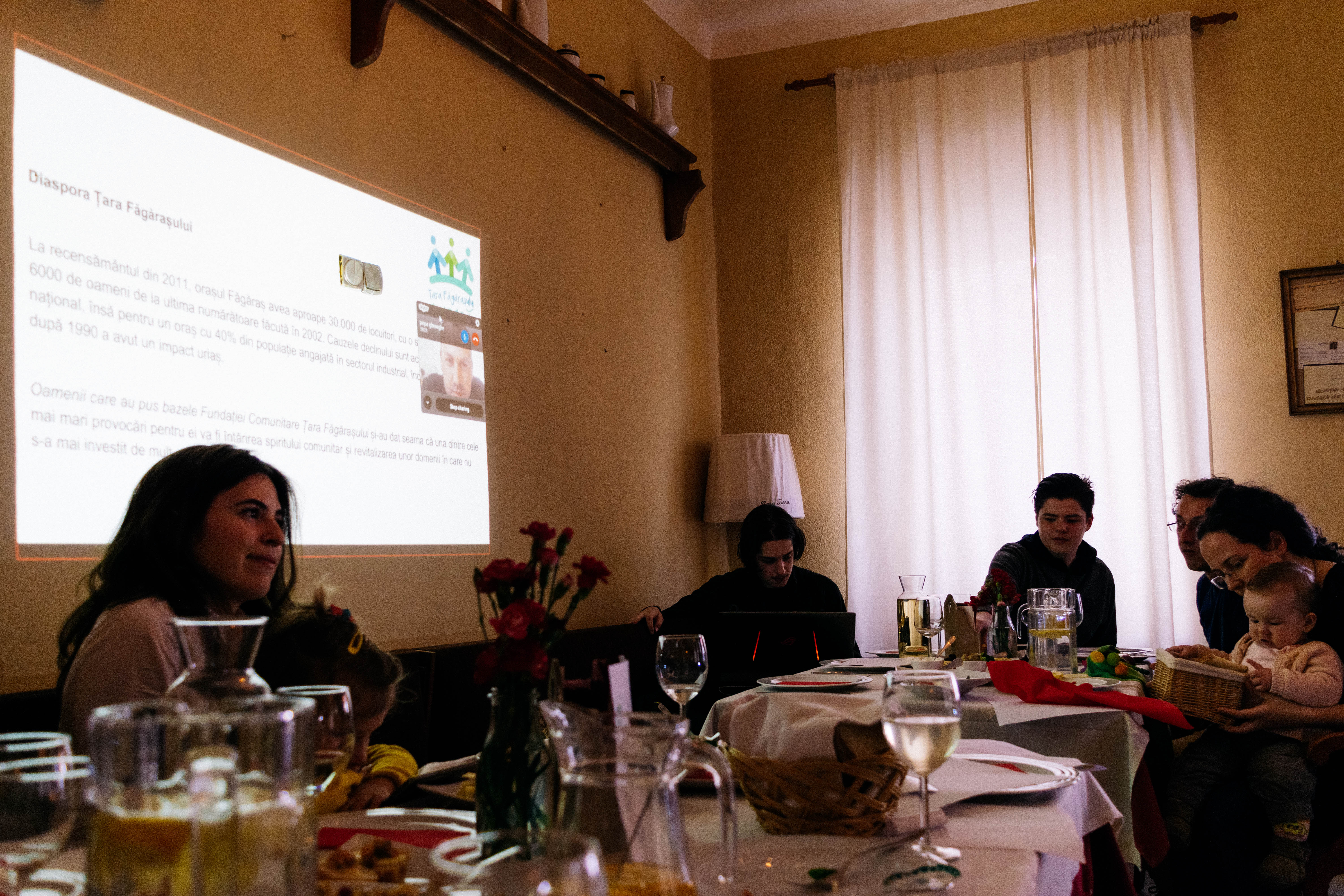Why the Țara Făgărașului Community Foundation sees the region’s diaspora as a vital part of its local community
26 Feb 2019
 Designing meaningful channels of engagement for the Făgăraș diaspora
Designing meaningful channels of engagement for the Făgăraș diaspora
By: Oana Mitea, Executive Director of the Țara Făgărașului Community Foundation & Ștefan Cibian, Ph.D., Executive Director of the Făgăraș Research Institute
Our hometown, Făgăraș, is a community where most of the residents have experienced living in other locations, be it in other cities in Romania or abroad. Most families in our community currently have relatives living in other countries and, over the last 30 years, the population of our town has almost halved. But, in our view, it goes without saying that the diaspora should still play a central role in any attempts to strengthen the local community.
At the Țara Făgărașului Community Foundation we embarked on a process to involve the diaspora more concretely in our activities three years ago. In this endeavour, we have partnered with MKBT: Make Better, a start-up focusing on urban regeneration and local development, and with the recently established Făgăraș Research Institute, in order to both strengthen our approach, and to contribute to creating local research capacity on migration and development.
Our motivation stems from our experiences relating to living in Făgăraș, which we could call a “transnational community” [1], and from the conviction that in today’s digital world, it should be straightforward enough for the Făgăraș diaspora to remain an integral and connected part of our community. When digging deeper into the types and frequency of contacts that the Făgăraș diaspora maintains with the region, we cannot be anything but optimistic about our aims: to identify ways in which this diaspora can culturally, civically, socially, and economically continue to be present in our community. We are hoping to see more civic engagement, generosity that drives social change, and, overall, communities that thrive by using today’s technology to overcome issues such as depopulation and economic contraction.
Our approach is based on creating opportunities for the diaspora that will make them feel like they can continue to be a significant part of the local community. While our aim is not to impact individuals’ decisions about their country of residence, we instead are focused on building meaningful ways for those living elsewhere to contribute to our communities in Făgăraș, irrespective of their location.
We have started to do this by finding ways in which the diaspora can take part, while still away, in some of our projects, and by organizing targeted events in the periods of the year when the diaspora tends to visit home (i.e., in our case, predominantly in August). For example, we had a positive experience in engaging the diaspora in the 2018 Țara Făgărașului Bike-a-Thon. There was a group originally from Făgăraș who now live in Germany that wanted to organize a bike tour in their region of Germany, as a “satellite event” on the same day as the Bike-a-Thon. We supported the group with all the logistical aspects we could, sending them Bike-a-Thon branded t-shirts and other materials. It was a good experience for the participants, who selected a cause in Făgăraș and then biked to raise money for that. We see this as a relatively easy, and replicable way to connect the diaspora to our activities.
 Făgăraș community members on their German bike-a-thon
Făgăraș community members on their German bike-a-thon
In addition, we would like to take a more structured approach to engaging diaspora in the community. Specifically, we would like to invite them to design together meaningful channels of engagement. In order to do this, we produced a report on the diaspora’s potential engagement. This report was launched on 8 February 2019 and shows the extensive impact of out-migration on the communities in our region, while at the same time highlighting factors that drive diaspora engagement both in communities of origin and residence. Key factors relate to: the perception of whether communities of origin are evolving positively or negatively (with the diaspora being more inclined to contribute where a positive evolution is perceived); the role of friends from the communities of origin in triggering participation and donations; and, the time spent away from the community.
At the February event – together with people from the community, local authorities and other partners – we dedicated time to laying the groundwork for a Diaspora Fund. At the same time, we engaged in a discussion with local authorities on what can be done to improve public services in our community in a way that is mindful of diaspora needs. We touched upon areas such as health and educational services, e-governance, online payment of taxes, ease of obtaining identity documents, etc. We took the time to discuss these services affecting the diaspora not only because of the first result of the research listed above (i.e. the diaspora are more willing to engage with home communities if they think positive changes are happening there), but also because – as we have stated several times now – the diaspora is still a vital part of our community, so we feel it only natural to redesign public services while also keeping their needs in mind.
 The February event laid the groundwork for the Diaspora Fund
The February event laid the groundwork for the Diaspora Fund
Regarding the Diaspora Fund that we are currently developing, we envisage a mechanism that is built based on diaspora needs and through diaspora engagement and contributions. More specifically, it will be a thematic fund that will facilitate different types of contributions to local communities and that will address the most relevant local challenges perceived by the diaspora. From the current discussions we have already noticed a strong interest in education, health, the built environment, and the situation of the elderly. On our side, we would like to see the diaspora becoming more visible in the local community, at the same time exposing our region to different countries and cultures through sharing of diaspora experiences abroad.
These activities would not have been possible without the support of the GFCF, for which we are extremely grateful.
Read the report on diaspora engagment (in Romanian)
[1] We understand transnational communities to mean those made up of a populations which have experiences living in other places, where there is a high level of circular migration (regularly moving away from, and then returning to, the same community – usually due to motivations around labour and employment), and where migrant populations abroad maintain ties to their home community.

